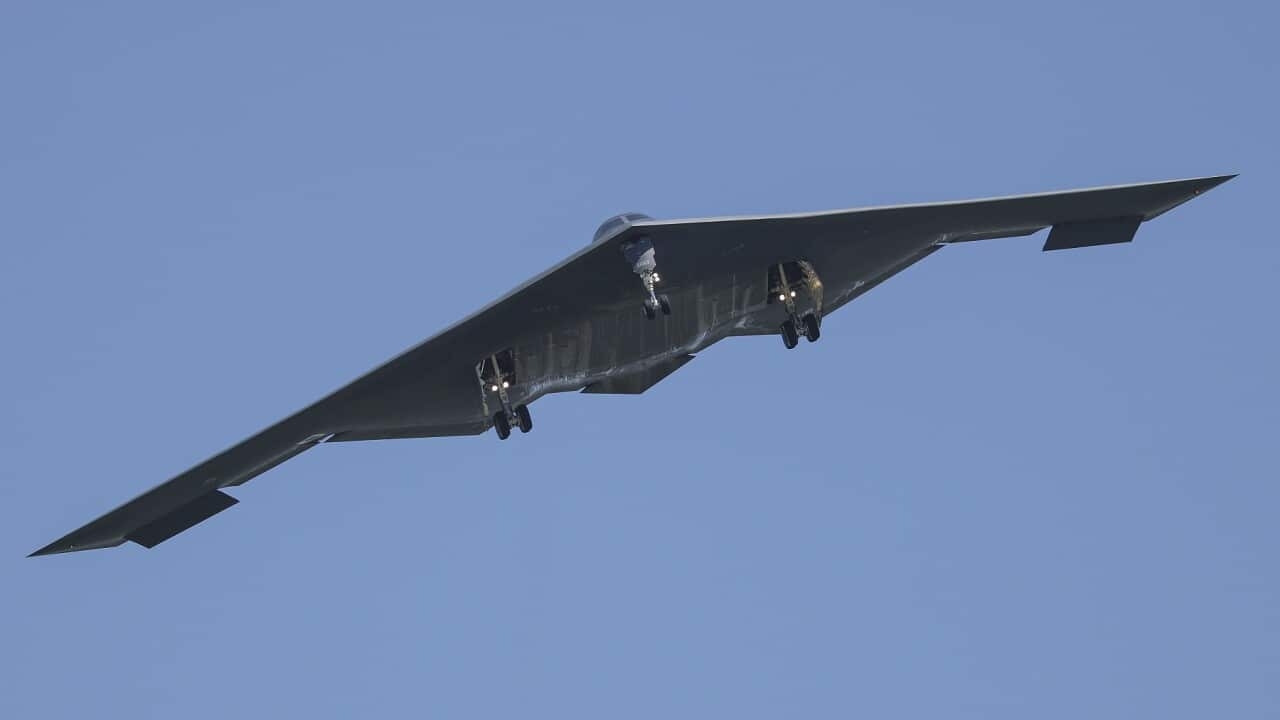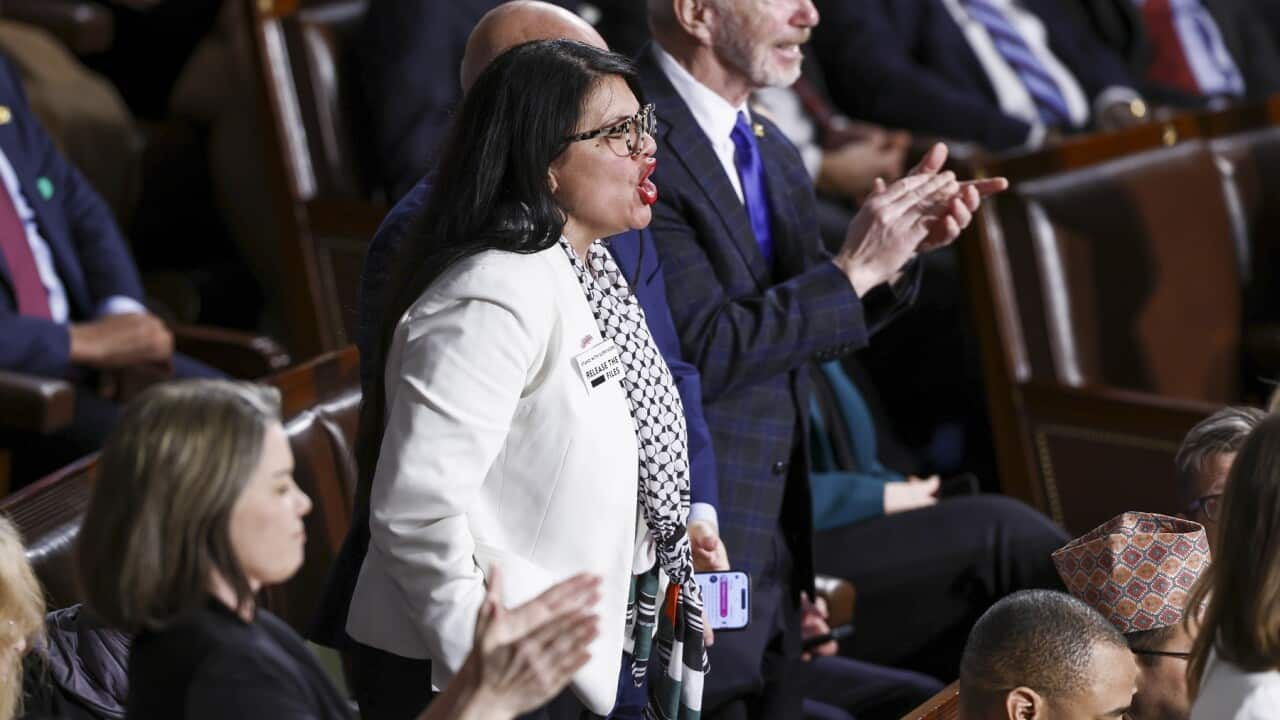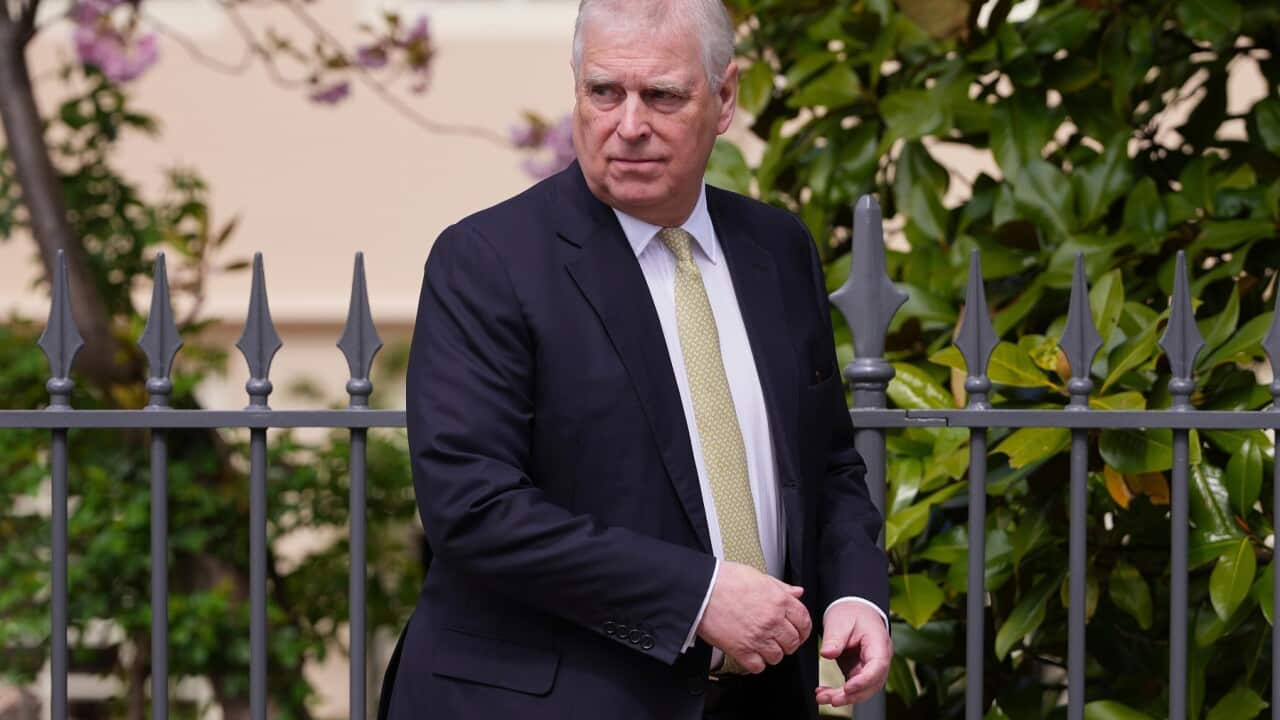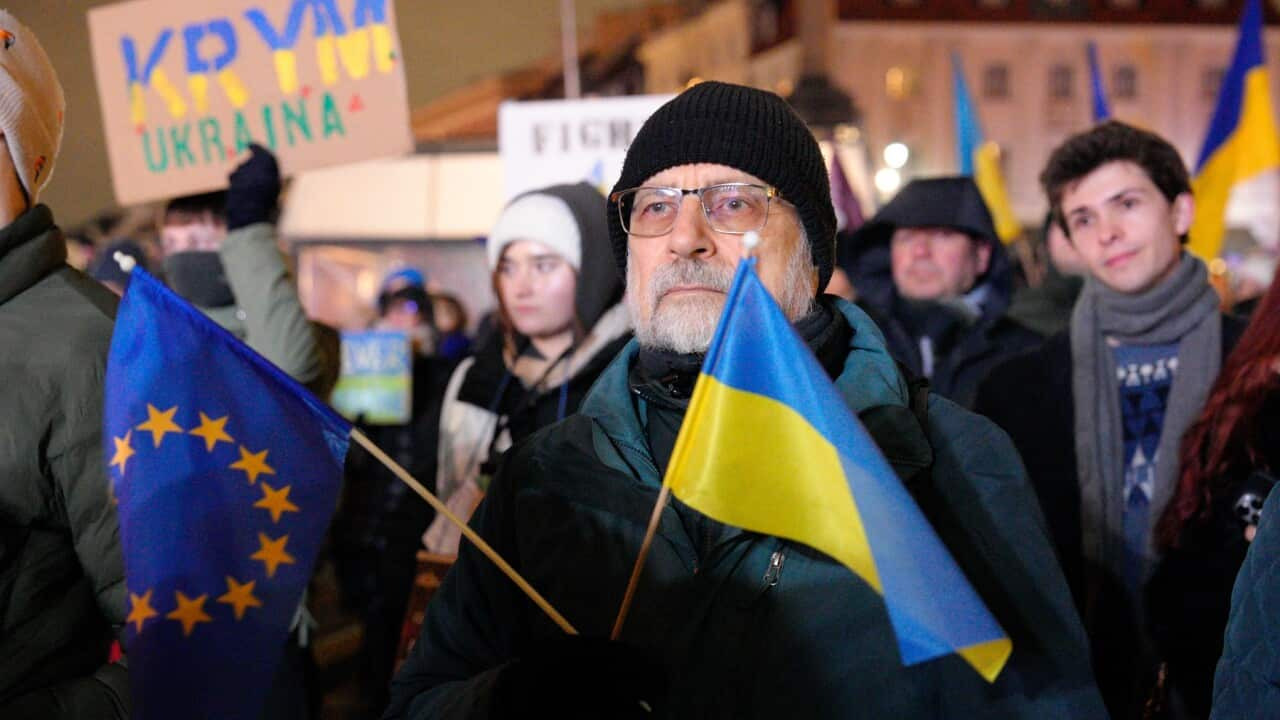Listen to Australian and world news, and follow trending topics with SBS News Podcasts.
TRANSCRIPT
After the United States joined Israel's assault on Iran over the weekend, Israel says Iran has now launched a barrage of strikes towards it.
The latest Israeli strikes on Iran killed at least three people after an ambulance was hit in Isfahan.
With the US strikes prompting yet another emergency UN Security Council meeting, UN Secretary General Antonio Guterres has issued another warning against escalation.
“We must act immediately and decisively to halt the fighting and return to serious, sustained negotiations on the Iran nuclear program. We need a credible, comprehensive and verifiable solution, one that restores trust, including with full access to inspectors of the IAEA (International Atomic Energy Agency) as the United Nations technical authority in these fields.”
Over the weekend, the United States joined Israel in the largest Western military action in Iran since its 1979 revolution.
Iran has vowed to retaliate, warning that US bases in the Middle East could be hit in the response.
Iran's Ambassador to the UN, Amir Saeid Iravani, says the US and Israel have crossed a red line.
" Throughout history, the resilient and united Iranian nation has withstood deeper wounded (sic) and faced more vicious enemies. And this time It will show its dignity, strength, and greatness to the world. Over the past 10 days, the Israeli barbaric assault, the international bodies, including the UN Security Council and the International Atomic Energy Agency, have been provided with all the necessary information and warning. Yet, they have proven once again that the so-called eight decades' long quest to prevent war and aggression is hollow and powerless in practice."
Since Israel launched strikes on Iran on June 13, Iran says Israel has killed more than 400 people.
Israel says Iranian strikes have killed 24 in Israel.
Despite U-S officials reiterating that regime change is not the objective of US involvement, President Donald Trump has hinted otherwise.
In a post on social media, Mr Trump writes that there's no reason why there should not be regime change if the current government in Iran can't, in his words, 'make Iran great again'.
US Secretary of Defence Pete Hegseth says the attacks are aimed at removing Iran's nuclear capabilities, not at forcing a regime change.
"This mission was not and has not been about regime change. The president authorised a precision operation to neutralize the threats to our national interests posed by the Iranian nuclear program and the collective self-defence of our troops and our ally Israel.”
According to the US, strikes were carried out on three of Iran's nuclear facilities - Fordo, Natanz and Isfahan.
Buried within a mountainside, the Fordo nuclear site holds a uranium enrichment plant that's believed critical to Iran's nuclear program.
The US sent a 13 tonne bomb to the Fordo site, despite calls from the International Atomic Energy Agency not to attack nuclear facilities.
The Iranian foreign minister Abbas Araghchi, now in Moscow for talks with Vladimir Putin, says the strikes cast doubt over the future of the non-proliferation treaty.
“Well, I think, I'm not in a position to reveal what we are going to do in response to what Americans did last night. I just talked about the fact that the NPT (non-proliferation treaty) failed to protect Iran and its peaceful nuclear programme and this is a serious challenge.”
Since 1992, Israeli Prime Minister Benjamin Netanyahu has been issuing warnings claiming that Iran is dangerously close to acquiring nuclear weapons.
There is currently no available evidence showing that Iran possesses or is pursuing the development of nuclear weapons.
While arms analysts estimate Israel possesses around 90 nuclear warheads, it remains one of only five nations that are not signatory to the Non-Proliferation Treaty.
Director General of the International Atomic Energy Agency Rafael Grossi says the US-Israeli assault risks pushing Iran to leave the treaty.
"The nuclear non-proliferation regime that has underpinned international security for more than half a century is on the line. The dramatic events in Iran have become even more serious with last night's bombardments and the potential widening of the conflict. We have a window of opportunity to return to dialog and diplomacy. If that window closes, violence and destruction could reach unthinkable levels, and the global non-proliferation regime, as we know it, could crumble and fall."
While Israel and the US say they obliterated Iran's nuclear facilities, proper analysis of the damage has not yet been conducted.
Days before the attacks, cargo trucks were seen travelling to and from the Fordo facility, with both Iranian and Israeli officials saying Iran evacuated the sites ahead of the US attack.
Analysts say that while it is possible to disrupt the physical function of a nuclear facility, the breadth of technical knowledge acquired during the decades-long programme is impossible to destroy.
Darya Dolzikova is a Senior Research Fellow in Proliferation and Nuclear Policy at the Royal United Services Institute London.
She says you cannot destroy knowledge through military means.
“It's possible to degrade the program to varying degrees, depending on how many strikes the Americans are willing to carry out and against which facilities or the Israelis, however, we're not talking about the full elimination of the program. I don't see that being feasible using just military means. The program is not only dispersed physically and there might yet be facilities that at least publicly we're not aware of but also just on a more basic level there is a lot of latent expertise in the country. This is a program that's been operating for decades. So, there's a lot of Indigenous expertise, so if the Iranians chose to rebuild whatever capacity has been damaged, the expertise is most likely still there to be able to do that.”
Both Russia and China have condemned the strikes, with Russian officials recalling the claims of Weapons of Mass Destruction in Iraq that were used to justify the U-S invasion in 2003.
In the end, no weapons of mass destruction were found in Iraq and it is estimated that over 100,000 civilians were killed in the ensuing war.
Russian ambassador the United Nations, Vassily Nebenzia, says the US is once again harming the international community for its own gains.
“Washington yet again demonstrated its complete contempt for the position of the international community. Washington reasserted that to further the interests of its Israeli ally, it's prepared not only to turn a blind eye to the killings of tens of thousands of Palestinian women, children and older persons. But also to gamble with the safety and well-being of humanity as a whole. Through the actions, the US has opened a Pandora's box. No one knows what new catastrophes and suffering it will bring.”
Prior to the Israeli strikes, Iran was engaged in talks with the US on its nuclear program, which Mr Trump described as 'constructive'.
On June 9th, just four days before Israel attacked Iran, the US President announced that Iran had rejected a key element of a US proposal that would require it to relinquish control over its nuclear enrichment capabilities.
Israel's ambassador to the UN, Danny Danon, says Israel and the US tried and failed to engage diplomatically.
“You cannot ignore that diplomacy was tried over and over. The United States led that effort. Many nations here in this room engaged in diplomacy with determination and good faith. But the regime in Tehran had other plans. It used the negotiating table as camouflage, a delay tactic, a way to buy time while building missiles and enriching uranium.”
Abbas Araghchi says calls for Iran to engage diplomatically are futile as that is exactly was Iran was trying to do.
“Well, I think it is irrelevant to ask Iran to return to diplomacy because we were in the middle of diplomacy. We were in the middle of talks with the United States when Israelis blew it up. And again, we were in the middle of talks and negotiation with Europeans, happened only two days ago in Geneva, when this time Americans decided to blow it up. So we were in diplomacy. But we were attacked.”
In Australia, Foreign Minister Penny Wong has emphasised Australia's support for the U-S strikes.
While Ms Wong says that Washington has not made any requests of Australia, she did not disclose whether the joint U-S intelligence surveillance base, Pine Gap, played a role in the operation.
Ms Wong says Department of Foreign Affairs staff were evacuated from Iran and are helping Australians who make it through Iran's border with Azerbaijan.
"We currently have 2,900 Australians and their families in Iran who have registered with us and seeking to leave. We have around 1,300 Australians and their families who have still registered with us in Israel and seeking to leave. The situation is very difficult, airspace remains closed, certainly in Iran, it is a very difficult situation. You have heard me previously urging Australians and their families to leave if they believe they can do so safely."
Opposition Home Affairs spokesperson Andrew Hastie says the government response has not gone far enough.
"Look, I think they've been far too ambiguous. United States is a close ally. United States has a key role in re-establishing order and peace in the Middle East. And Iran, by contrast, is a regime that sponsors terrorism. It sponsored Hamas, Hezbollah, and the Houthis. It has taken actions against Israel. "













